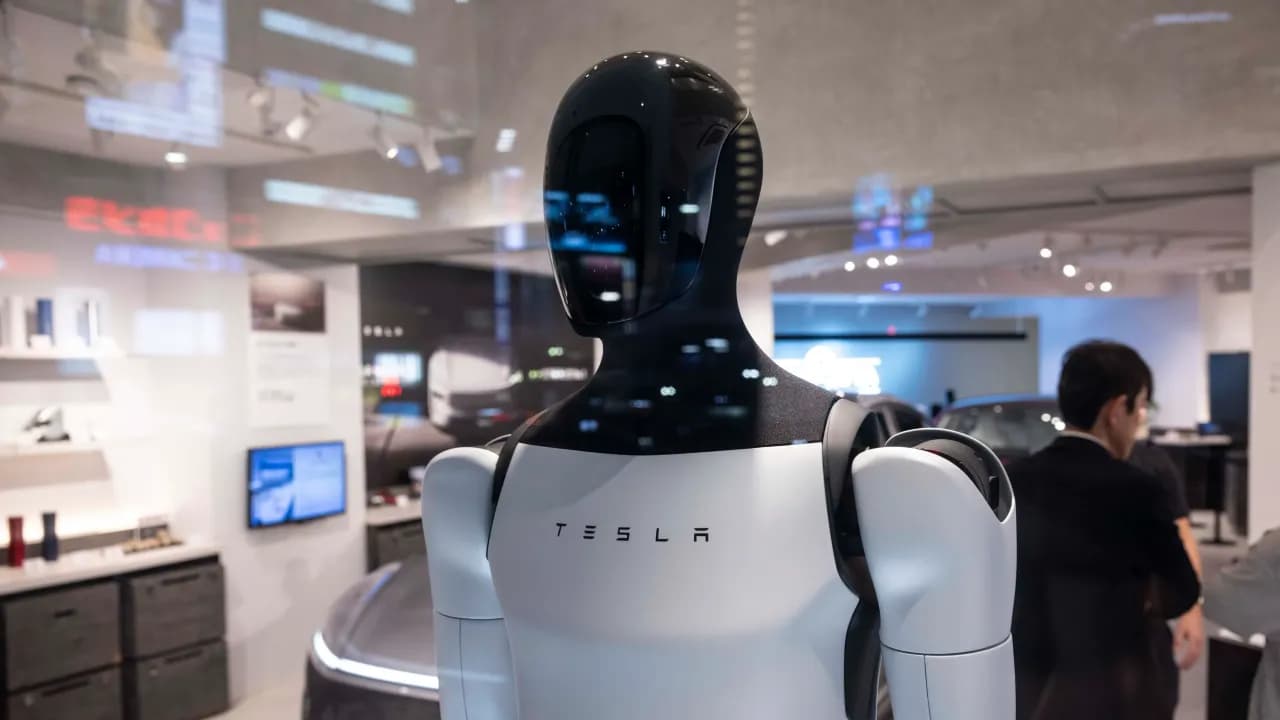Speaking on the All-In Summit podcast, Musk said Tesla is finalizing Optimus version three, designed with human-like dexterity and intended for high-volume production.
Tesla CEO Elon Musk doubled down on his company’s robotics and AI ambitions on Tuesday, calling the Optimus humanoid robot the most difficult engineering project Tesla has ever attempted and touting a major leap in its custom AI chips.
Musk said Tesla is finalizing version three of Optimus, which aims to replicate human-level dexterity with complex hands, advanced AI navigation, and high-volume production.
“It’s harder than any of those things. Much harder… only Starship’s harder,” Musk said when asked how Optimus compares to Tesla’s most challenging vehicle programs.
He warned that Tesla has had to build an entire supply chain from scratch because actuators and components for humanoid robots “could not actually be bought for any amount of money.”
If successful, Musk said Optimus could become Tesla’s largest-ever product, with production costs potentially falling to $20,000–$25,000 per unit at volumes of around one million annually.
Musk also outlined Tesla’s next-generation AI chip roadmap, saying the AI5 chip will be 40 times more powerful than the current AI4 in some metrics, offering 8x the compute power, 9x more memory and 5x higher bandwidth.
He added that the AI4 chips already in Tesla vehicles will achieve full self-driving safety “at least 2–3x that of a human, maybe even 10x,” once upcoming software updates roll out.
Last week, Tesla published its “Master Plan Part IV” blueprint on X, which describes a vision of “sustainable abundance” through unifying hardware and software across EVs, solar, energy storage, and humanoid robots.
Musk said Optimus could ultimately account for 80% of Tesla’s value, describing the scaling of both Optimus and full self-driving software as the company’s biggest drivers ahead.
The plan builds on Tesla’s earlier roadmaps, from its early Roadster and Model S launches to energy storage and solar ventures, but makes clear that robotics and autonomy now sit at the core of its next phase.
On Stocktwits, retail sentiment for Tesla was ‘neutral’ amid ‘high’ message volume.
Tesla’s stock has declined 14% so far in 2025.
For updates and corrections, email newsroom[at]stocktwits[dot]com.<
